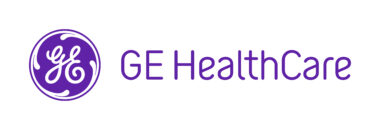Lifestyle management in polycystic ovary syndrome (PCOS) needs to reduce weight stigma, because for some people living with it, overly focusing on weight loss can negatively impact their mental health and wellbeing, a Monash University-led systematic review has found.
Published in Obesity Reviews, the research review found weight stigma was a barrier to women seeking treatment for PCOS and health professionals need to be better educated about it.
PCOS is an endocrine condition affecting 10-13 percent of reproductive aged women. Among other things, it can cause menstruation issues, infertility, excess body hair, higher risk of cardiometabolic conditions such as diabetes, and weight gain.
Lifestyle management through diet and physical activity changes can improve reproductive, cardiometabolic and psychological symptoms. There are also a range of treatments for various symptoms.
The review, by researchers at the Monash Centre for Health Research and Implementation (MCHRI), included 68 eligible research papers around the care of those with PCOS, focusing on diet and physical activity.
It found all involved believed the professional education on PCOS and lifestyle management for healthcare professionals was inadequate and impacted quality of care and health outcomes.
Weight stigma was identified as negatively impacting those with PCOS in larger and smaller bodies, reducing the quality of care and affecting self-perception and mental health.
Many people with PCOS believed that lifestyle management was overly focused on weight loss and fertility, independent of their own personal motivations and goals.
The study called for systemic changes, including improved healthcare professional education on lifestyle management, and a greater collaboration between professionals across medical disciplines.
Joint senior author and Lead of MCHRI’s Healthy Lifestyle Program, Associate Professor Lisa Moran, said the study found care should focus on lifestyle advice meeting individual needs and reducing weight-centric care to ensure sustainable changes and improvements in health can be made.
“We identified lifestyle advice delivered by a multidisciplinary team, including dietitians, as a key component for change,” Associate Professor Moran said. “All involved in the reviewed studies agreed that individualised and PCOS-specific lifestyle advice is needed.”
First author, APD dietitian and PhD candidate at MCHRI, Margaret McGowan, said weight stigma was a barrier for accessing PCOS care and healthcare professionals needed more education/training about the effects of weight stigma.
“Those in larger and smaller bodies are both affected by weight stigma but in different ways,” Miss McGowan said. “Some in smaller bodies are often denied lifestyle management of PCOS and perceived as ‘healthy’ by healthcare professionals. Those in larger bodies often receive care focused on weight loss, negating other concerns they may have.”
Joint senior author Dr Steph Cowan, from the MCHRI, said the review showed more training was needed for health professionals, with a focus on patient-centred care.
“Practice should change to include options such as weight neutral care where appropriate, and if weight loss is prioritised by consumers, they need to be supported by appropriately trained health professionals,” Dr Cowan said.
The AskPCOS App is a free women’s digital health tool, with over 75,000 users in 195 countries. It is part of MCHRI’s International PCOS Guideline Translation Program, which also includes PCOS resources for health professionals and consumers. In 2023, with 39 societies and more than 100 multidisciplinary and lived-experience experts, MCHRI released the International Evidence-based Guideline for the assessment and management of polycystic ovary syndrome 2023.
The Monash Women’s Health Alliance (MWHA) channels and leverages a network of over 185 research leaders, over 50 specialist research groups, data sets, registries, biobanks and clinical trial footprints, to lead a step change in prevention, public health and clinical practice for women, girls and gender diverse people of all ages.
For media enquiries please contact:
Monash University
Cheryl Critchley – Media and Communications Manager (medical)
E: [email protected]
T: +61 (0) 477 571 442
For more Monash media stories, visit our news and events site
For general media enquiries please contact:
Monash Media
E: [email protected]
T: +61 (0) 3 9903 4840
***ENDS***


